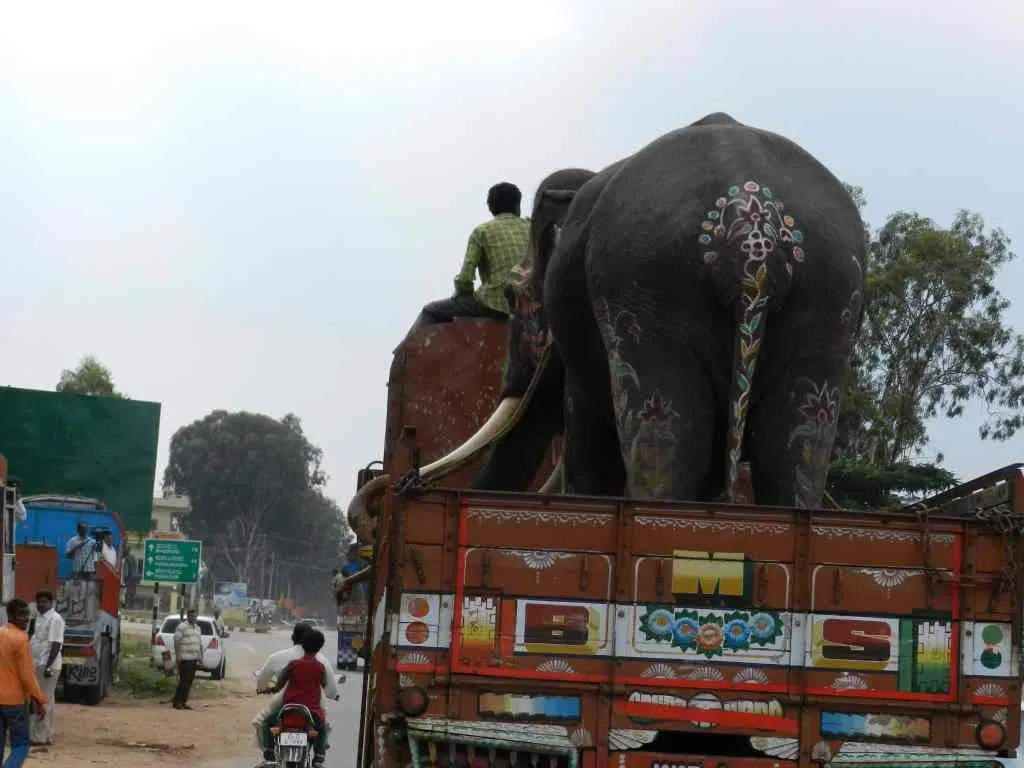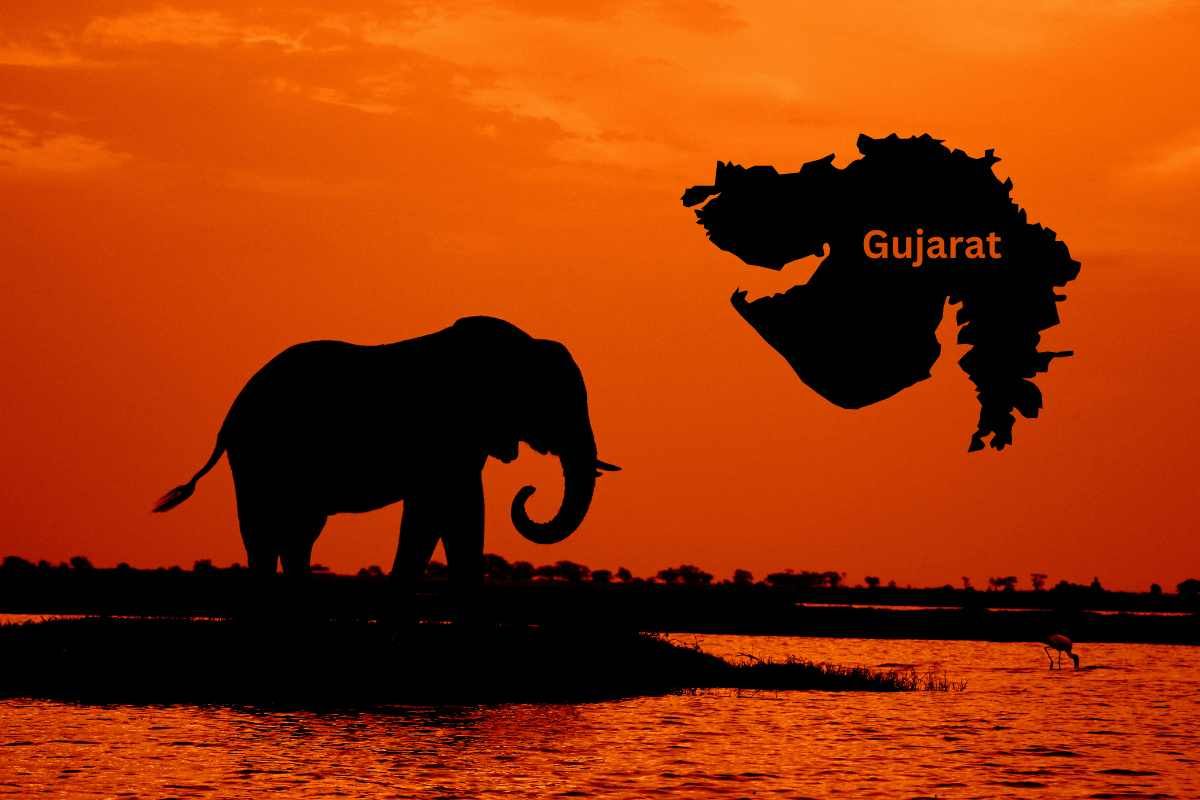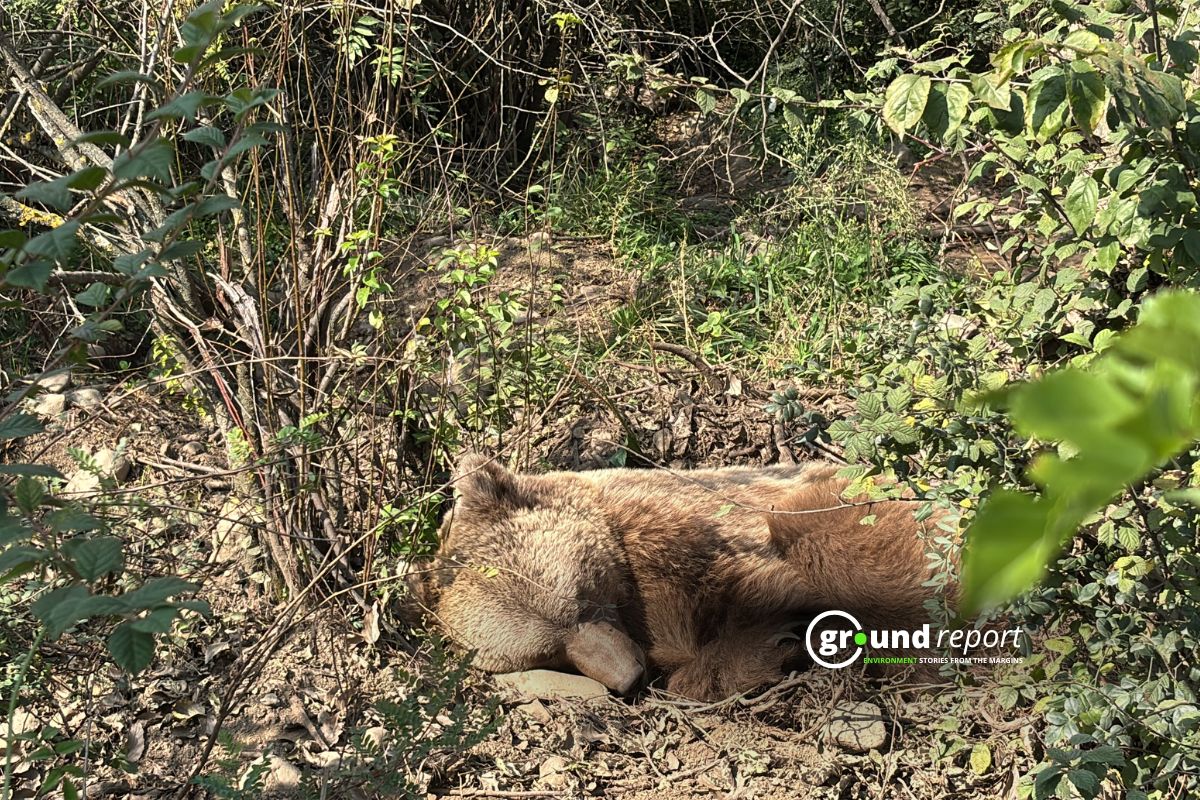The recent news of elephants from Arunachal Pradesh being sent to the Radhe Krishna Temple Elephant Trust in Gujarat has sparked concern and controversy. At first glance, it might seem like a harmless relocation of animals to a different part of the country as the Wildlife Protection Act of 1972 permits the use of captive elephants for religious, cultural, and other traditional purposes. This means that some individuals and organizations may be permitted to buy or sell captive elephants for these purposes. Additionally, there are some instances where elephants may be relocated from one state to another for conservation purposes or other reasons, as long as the necessary permits and clearances are obtained from the authorities.
However, the reality is far more complex than that. Elephants are revered animals in India, and their welfare is of utmost importance to many people. Moreover, their status as an endangered species means that every effort must be made to ensure their survival.
What is interesting to note here, in this case, is how the story unfolded? It happened with the sincere observations of students and the reasons behind the elephant owners giving up their animals.
Observations of students
It all began when students from Arunachal Pradesh noticed a number of trucks loaded with elephants passing through their town. This sparked their curiosity, and they started asking questions about where the elephants were being taken and why. They soon discovered that the elephants were being sent to the Radhe Krishna Temple Elephant Trust in Gujarat, which has a reputation for housing and caring for a large number of elephants. The students were informed that the relocation was carried out through the legal route, with the necessary permits and clearances obtained from the authorities, but this didn’t stop a number of petitions being filed against the shifting of the elephants, with concerns raised about their welfare and the legality of the move.
COVID-19 and Elephants
Elephant owners in Arunachal Pradesh, who often rely on income generated through tourism and other forms of work related to their elephants, have been hit hard by the pandemic. With fewer tourists visiting the region, there has been a decline in demand for elephant rides and other activities that involve elephants. This has led to a decline in income for the elephant owners, making it difficult for them to provide for the basic needs of their elephants, such as food and medical care.
This sheds light on the difficult reality faced by many animal owners in the wake of COVID-19. With many people struggling to make ends meet, it is not surprising that some have had to give up their animals due to financial constraints. Moreover, it also raises concerns about the welfare of these animals and whether they will receive proper care and attention in their new environment.
Why to Gujarat Temple?
The answer lies in the religious significance that elephants hold in Indian culture. Elephants are seen as holy animals and are often used in religious ceremonies and processions. It is believed that they bring good luck and prosperity, and are therefore considered auspicious.
The temple trust in Gujarat is known to have a large number of elephants, which are used in religious processions and other events. It is believed that the elephants from Arunachal Pradesh are being sent there to add to the temple trust’s existing collection. The decision to send elephants to Gujarat’s temple trust may also have been based on a number of other factors, including the reputation and history of the trust, the availability of suitable space and facilities for the elephants, and the cultural significance of elephants in the region.
It might also be possible that the trust in Gujarat had expressed a specific interest in obtaining elephants from Arunachal Pradesh. However, without more information on the specific decision-making process, it is difficult to say why elephants were sent to Gujarat’s temple trust over other states in India.

Concerns and controversy
The decision to send the elephants to the Radhe Krishna Temple Elephant Trust in Gujarat has been met with opposition from animal welfare activists and concerned citizens. Petitions have been filed, calling for the elephants to be returned to their natural habitat and questioning the legitimacy of the temple trust’s ability to care for such a large number of elephants. It is important to note that some big companies have been buying and transporting elephants illegally from the northeastern states of India, claiming them to be from Arunachal Pradesh. This has led to a rise in poaching and illegal trafficking of elephants, which has been a major concern for animal welfare activists and conservationists.
The sanctity of religious beliefs and practices must be balanced with the need to protect endangered species and promote their well-being. Moreover, the circumstances surrounding the owners giving up their elephants serve as a reminder of the economic hardships that many people are facing in the wake of the pandemic.
Conclusion
It is important to note that elephants are not domesticated animals, and their needs and behavior are vastly different from those of other animals. They require a great deal of space, food, and care to live healthy and happy lives. Also, elephants have a strong social hierarchy and need to be in the company of their own kind to thrive.
Therefore, the decision to send elephants from Arunachal Pradesh to a temple trust in Gujarat raises a number of ethical and practical questions. Is it in the best interests of the elephants to be uprooted from their natural habitat and sent to a completely different part of the country? Will they be provided with the necessary care and attention in their new environment? The question at hand is whether certain tradeoffs that are purportedly motivated by religious sentiments are actually being made in good faith, or if there may be ulterior motives at play.
The answer lies in the hands of the authorities responsible for the well-being of these animals. It is important to ensure that the welfare of the elephants is given top priority. And, that they are not subjected to any kind of cruelty or exploitation.
Keep Reading
Part 1: Cloudburst in Ganderbal’s Padabal village & unfulfilled promises
India braces for intense 2024 monsoon amid recent deadly weather trends
Support us to keep independent environmental journalism alive in India.
Follow Ground Report on X, Instagram and Facebook for environmental and underreported stories from the margins. Give us feedback on our email id greport2018@gmail.com.
Don’t forget to Subscribe to our weekly newsletter, Join our community on WhatsApp, and Follow our YouTube Channel for video stories.








